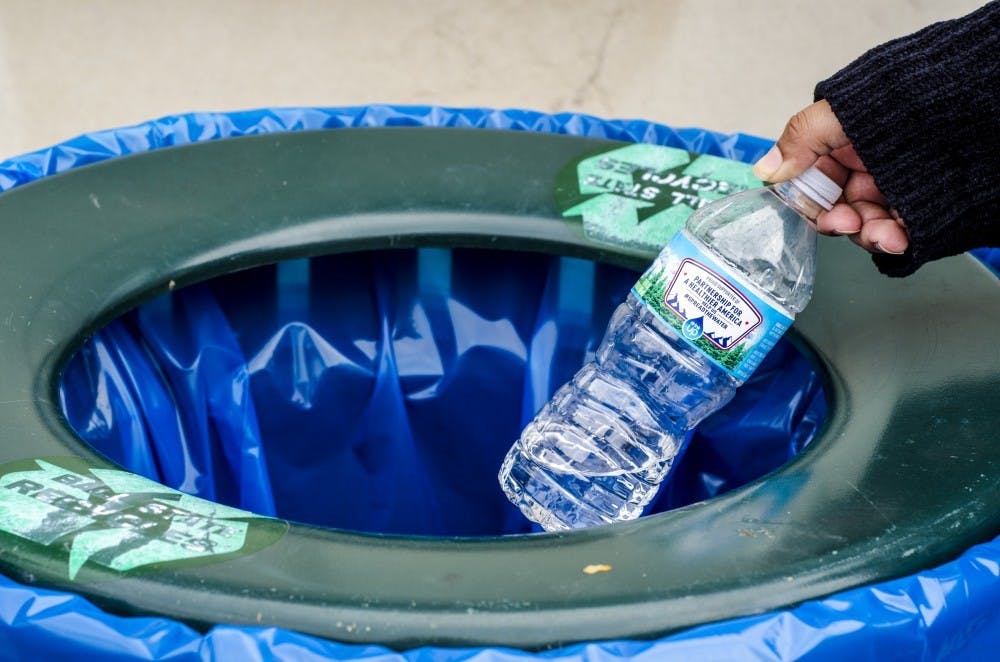Humans only have 12 years to take the steps necessary to save the planet from irreversible changes to climate and environment, according to The United Nations Intergovernmental Panel on Climate Change (IPCC) report.
The earth is nearing the critical 1.5 degrees Celsius (2.7 degrees Fahrenheit) above pre-industrial levels global warming temperature, which has the potential to cause permanent damage to the planet, according to the IPCC.
Reaching this dangerous threshold could lead to extreme weather including droughts, floods and an increased risk in wildfires and food shortages.
While there is limited time, there are a few easy steps people can take to help slow the warming trend.
Unplug: Limit energy expenditure
According to the United States Environmental Protection Agency, most energy-producing mechanisms involve mass production of carbon dioxide (CO2) and greenhouse gas emissions.
“When we talk about global warming, the first thing comes into our mind is CO2 emission,” said Bowen Zhang, assistant professor of natural resources and environmental management.
Zhang said an IPCC 2015 study concluded that methane and nitrous oxide have 28 times and 265 times higher global warming potentials than carbon dioxide at 100-time scale.
One way to help this is by using less electricity by unplugging devices that are not in use. Purchase a power strip and plug all electronic chargers into it, then simply switch the strip off when it is no longer needed.
Switching to CFL or LED light bulbs and spending less time on electronics can also reduce energy expenditure.
Invest in a reusable water bottle
A journal article from “Waste Management” states 389 billion plastic bottles made from polyethylene terephthalate, a common type of plastic, were produced globally in 2010.
The article states these type of plastic bottles are resistant to environmental biodegradation, meaning a bottle that is thrown into the environment won’t degrade for another 500 years.
Each year, 17 million barrels of refined oil are used to produce water bottles, which is more than the amount of oil needed to fuel more than 1 million cars a year.
According to the U.S. Energy Information Administration, drilling affects marine ecosystems, requires the clearing of vegetation and hydraulic fracking requires immeasurable amounts of water and produces wastewater that oftentimes contains harmful chemicals and contaminants.
“I think it’s little things — not buying plastic water bottles and using the same one over and over, putting your recyclables in the recycling bin instead of the trashcan,” said Connor McCabe, freshman natural resources and environmental management major. “There’s a lot of little things that everyone can do that can make everything a lot better.”
If everyone in the world used a reusable water bottle, using numbers from the article, almost 54 plastic water bottles could be saved per year. Meaning 1,136,417 water bottles could be saved in a year if every Ball State student switched to a reusable water bottle.
Avoid purchasing products made from petroleum
The website of British Petroleum's Whiting Refinery located in Whiting, Indiana, states 7 million cars could successfully complete their daily travels with the amount of refined oil produced in the Whiting BP branch per day.
With every gallon of gasoline that those vehicles burn, the U.S. Department of Energy states that 20 pounds of carbon dioxide is released into the air that people breathe on campus every day.
Common petroleum-based products include ballpoint pens, deodorants, umbrellas, most clothes and bathroom products.
Before shopping, consumers can research products that do not require the use of petroleum to produce, including purchasing items at local thrift stores to cut back in the petroleum-dependent production of new fashion items.
Changing up diet
The foods that one eats on a daily basis — although possibly nutritious — may not be the healthiest options for the environment.
Red meat, beef in particular, is one of the top producers of methane gas. In fact, animal agriculture produces more pollution and excrements than the entire human population.
Additionally, the production of meat is responsible for releasing more greenhouse gas emissions than all transportation methods globally.
“A large amount of methane and nitrous oxide could emit from ruminant animals and nitrogen fertilizer used in agriculture,” Zhang said. “The ever-increasing human population and shifts in diet structure with more meat consumption all lead to the increase in the growing demand for livestock populations, which result in the emissions of the related greenhouse gases.”
Contact Taylor Smith with comments at tnsmith6@bsu.edu.





